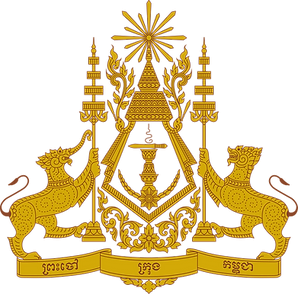Cambodia’s Foreign Policy Direction
Cambodia’s Foreign Policy Direction
The Kingdom of Cambodia pursues a foreign policy that protects and promotes its national interests, by undertaking the following five main tasks:
1. Protect national independence, sovereignty, territorial integrity and neutrality; maintain peace, security, stability, order, and social unity.
Cambodia will continue to uphold its independent decision making in both domestic and foreign policy aspects – in politics, economy, trade, investment, especially in national security and defense – with respect to the principles of permanent neutrality, non-alignment, peaceful coexistence with neighbors and with all countries in the world, as well as peaceful settlement of disputes and mutual benefits.
Cambodia preserves and exercises its sovereign rights in pursuing a course of action that is most appropriate in safeguarding its territorial integrity and core national interests in accordance with the Constitution.
Cambodia will continue to do its utmost in safeguarding rights and interests of the Cambodian people overseas, to cooperate with host country’s authorities concerned to address Cambodian migrant workers’ challenges and to render migrant workers with necessary services and support when needed.
2. Foster more friendship abroad based on the spirit of national independence
Cambodia will work to better strengthen existing friendly relations, cooperation, and partnerships with other countries; restore cooperative relations with old friends, and foster good relations with a new one, especially with countries in the Eastern and Central Europe, Central Asia, Africa, Middle East, and Latin America.
Cambodia is also committed to further contribute to the enhancement of people-oriented and people-centered ASEAN Community, maintain and consolidate ASEAN unity and centrality, and through ASEAN, promote and strengthen relations with external partners for socio-economic growth and development conducted based on two fundamental principles which are an adherence to consensus in all decision-making process and non-interference in internal affairs of others.
3. Promote economic diplomacy
In contribution to the realization of the government’s vision in transforming Cambodia into a high-middle-income country by 2030 and a high-income country by 2050, the shifting focus from the practice of traditional diplomacy to a diplomacy that places economy, culture, and tourism at its cores will significantly contribute to the attraction of foreign investment, diversification of investment sources, the expansion of export markets for Cambodian products, tourists attraction, and the promotion of Cambodian culture on the world stage.
Cambodia will continue to pursue the path of economic liberalization, open trade and globalization as well as strive to promote multilateral trade with the WTO. In this spirit, Cambodia had also constructively played its part in efforts to reach an agreement on Regional Comprehensive Economic Partnership (RCEP), and will continue to negotiate free trade agreements with other countries such as the Republic of Korea and the Eurasian Economic Union.
4. Continue to support and strengthen multilateralism
In the governance of the world affairs, and actively engage in global efforts in addressing challenges which threaten peace, security, rule-based international order, and sustainable development. Cambodia will continue to actively contribute to the maintenance of peace in the world by dispatching its forces to participate in the UN peacekeeping missions, professionally carry out humanitarian actions, strictly adhere to international laws and regulations, and build good relations with local community and people.
Cambodia also welcomes and supports all initiatives that promote peace, stability and prosperity in the region, and that are mutually beneficial and complementary. It is, therefore, crucial and necessary to build synergy and complementary among flagship regional initiatives such as the “Belt and Road”, the “Indo-Pacific Strategy”, and other policies of major regional countries toward Southeast Asia, as well as various mechanisms under the Mekong sub-regional cooperation.
5. Enhance the quality, efficiency and capacity of Cambodian diplomats
Promoting internal reform in both physical and non-physical infrastructure has become a priority to prepare a diplomatic corps that is professional, patriotic, active, and capable.
Investing in human resource development as well as professionalism through the establishment and strengthening roles of the National Institute of Diplomacy and International Relations (NIDIR) becomes more necessary and significant to serve the core interests of Cambodia.
In this regard, Cambodia welcomes all foreign friends for their continued support and good cooperation in human resource development, whether in the forms of scholarships, study tours, exchange of experiences, training courses, or sharing knowledge and ideas.

